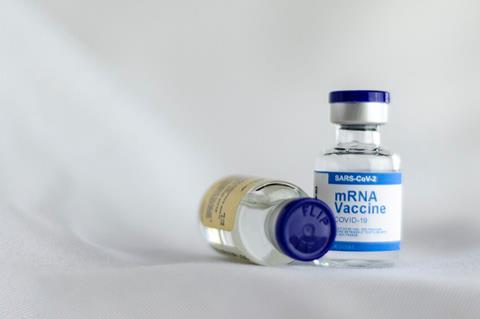Researchers at the University of Cologne and University Hospital Cologne have shown in their study that the novel mRNA-based COVID-19 vaccines not only induce acquired immune responses such as antibody production, but also cause persistent epigenetic changes in innate immune cells.
The study ‘Persistent epigenetic memory of SARS-CoV-2 mRNA vaccination in monocyte-derived macrophages’, led by Professor Dr Jan Rybniker, who heads the Division of Infectious Diseases at University Hospital Cologne and is a principal investigator at the Center for Molecular Medicine Cologne (CMMC), and Dr Robert Hänsel-Hertsch, principal investigator at the CMMC, was published in Molecular Systems Biology.

The immune system comprises two immunity strategies: the innate and the acquired (adaptive) immune system. The innate immune system provides a general protection from pathogens and must react quickly. The adaptive immune system adapts to new pathogens and is highly specific in its response. Both systems work closely together.
According to the research group, the changes they have now observed are caused by epigenetic markers on the DNA. Epigenetic means that histones – proteins which act as cable drums around which DNA winds – are reversibly acetylated. Acetylation is a chemical modification that can be placed on and removed from the cable drum like a plug, causing changes in gene expression without changing the DNA sequence itself.
Epigenetic changes on innate immunity
Thus, vaccination with mRNA vaccines could lead to an enhanced immune response to future encounters with pathogens which are not specifically targeted by the vaccine. “Our findings show that mRNA vaccines induce an epigenetic ‘training’ of innate immune cells, enabling a sustained immune response,” says Dr Alexander Simonis, first author of the study. The epigenetic changes may provide the basis for long-lasting innate immunity that broadens the protection mechanisms of the acquired immune system. This can now be tested in larger clinical trials based on these study results.
READ MORE: mRNA vaccine created to prevent and treat C. difficile
The researchers analysed monocytes – a type of white blood cells that can differentiate into macrophages in humans – in blood samples of vaccinated participants at six different time points. Macrophages are classical cells of the innate immune system that are crucial for the rapid detection and digestion of pathogens. They found that mRNA-based COVID-19-vaccinations cause a significant and persistent change through acetylation, i.e. the binding of a chemical group to specific, immunologically relevant genes of these monocytes.
Long-term immune response
Moreover, the findings showed that these epigenetic changes were preserved for six months after the vaccination, suggesting that the vaccine trains the ‘long-term memory’ of the immune system. Since human monocytes only circulate for about three days in the body, the researchers assume that the precursor cells of monocytes in the bone marrow also carry the epigenetic markers.
However, a single mRNA-vaccination is not sufficient to potently induce the markers. “Two consecutive vaccinations or a single booster vaccination are required for these persistent epigenetic changes, highlighting the need for multiple vaccinations to maintain a long-term immune response,” says Jan Rybniker.
Implications for other infectious diseases
The observed epigenetic changes led to increased ‘reading’ of pro-inflammatory genes, which in turn led to the production of messenger substances, so-called cytokines, that can activate numerous immune cells and thus increase their ability to fight pathogens. “Since this is an activation of the innate immune system, which targets various pathogens in a relatively broad and unspecific manner, the mRNA vaccinations could also offer protection against other viruses and bacteria, at least for a certain period of time,” explains Dr Sebastian Theobald, who is also first author of the study.
“These findings suggest that histone modifications in macrophages not only activate genes involved in the immune response, but that these genes additionally form guanine quadruplex DNA structures, which may be crucial to persistent immunity,” says Dr Robert Hänsel-Hertsch, who is an expert in the field of epigenetics.
These findings have far-reaching implications for the development of future vaccination strategies, both against COVID-19 and other infectious diseases.
Topics
- Alexander Simonis
- Center for Molecular Medicine Cologne
- COVID-19
- Disease Treatment & Prevention
- epigenetic markers
- guanine quadruplex DNA
- Healthy Land
- Immunology
- innate immune system
- Jan Rybniker
- monocytes
- One Health
- Research News
- Robert Hänsel-Hertsch
- SARS-CoV-2
- Sebastian Theobald
- UK & Rest of Europe
- University Hospital Cologne
- University of Cologne
- Vaccinology
- Viruses







No comments yet